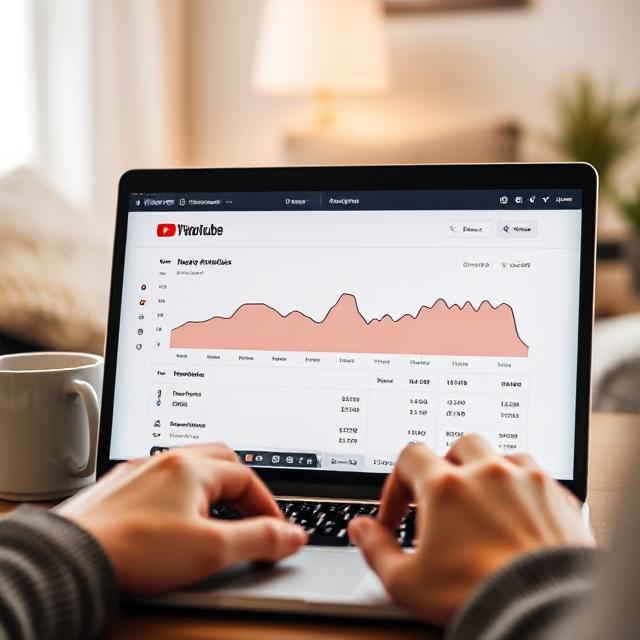
How I Built a Faceless YouTube Channel That Now Pays My Rent — Without Showing My Face or Using My Voice
My YouTube Story: From Watching Videos to Earning from Them
About a year ago, I was sitting in my small apartment in Ohio, broke, frustrated, and deep into the world of YouTube—watching creators thrive, while I couldn’t even pay rent on time.
I wasn’t a tech genius. I didn’t have a camera, fancy mic, or editing skills. But I had time—and an obsession with understanding how people were making thousands every month from faceless YouTube channels.
Today, my channel brings in over $2,800/month passively—and I’ve never once appeared on screen.
This is how I did it.
—
Step 1: Discovering the “Faceless” YouTube Model
While browsing Reddit one night, I came across the term “YouTube Automation” or “Cash Cow Channels.” The idea?
Pick a niche
Use stock footage or AI visuals
Add a voiceover (AI or human)
Upload consistently
Let YouTube’s algorithm do the rest
I was skeptical at first. But I had nothing to lose. So I researched day and night.
I realized some channels with millions of views didn’t even show a face or record their own voice. Channels like Top10s, The Infographics Show, and MotivationHub were making a killing.
—
Step 2: Picking My Niche — What Worked for Me
This was crucial.
I wanted something that:
Didn’t require my face
Was evergreen (people always search for it)
Had high CPM (more ad revenue per 1000 views)
After testing a few niches, I landed on:
“AI Tools & Online Earning Tutorials”
Why? Because people in the USA were hungry for this content—especially side hustles, AI automation, and productivity tools.
—
Step 3: Scripting and Content Creation — Without a Team
Here’s the simple system I followed:
1. Scripting
At first, I wrote scripts myself. Later, I started using ChatGPT (yep, like this) to write engaging, informative scripts based on trending topics.
Example prompt:
“Write a 5-minute script on top 3 AI tools to make money online.”
2. Voiceover
I started with free AI voice tools like ElevenLabs (free version), TTSMP3, or Google TTS. Later, I upgraded.
Pro Tip: Use USA English voices to appeal more to US-based audience.
3. Video Creation
I used Canva Pro + Pexels/Storyblocks footage, then shifted to Pictory for quick AI-generated videos.
Each video took me 1–2 hours max.
4. Thumbnail & Title
I used Canva for thumbnails. I made sure they were:
Bold
Minimal text
One shocking visual or bold claim
Example:
“This AI Tool Replaced My 9–5 Job”
—
Step 4: Uploading and SEO Strategy
I optimized every upload with:
Keyword-rich titles: “Earn $100/Day Using ChatGPT”
Strong descriptions: Including relevant keywords
Tags + Hashtags: Like #makemoneyonline, #aihustle, #youtubeautomation
I also studied trends using vidIQ and TubeBuddy (free extensions).
—
Step 5: Monetization Milestone — 1,000 Subs & 4,000 Watch Hours
This part took effort. But here’s what helped me grow fast:
Uploaded 3x per week
Used YouTube Shorts to get views fast (some hit 50K+ views)
Commented on big creators’ videos with helpful replies
Asked friends to binge-watch my playlists (to boost watch time)
Within 3 months, I got monetized. First paycheck? $122. Small—but life-changing.
—
Bonus: Multiple Income Streams from One Channel
Once monetized, the channel opened other doors:
✅ AdSense — $2,800/month (main income now)
✅ Affiliate Marketing — Promoting tools like Canva, Pictory, or TubeBuddy
✅ Digital Product Sales — A $7 ebook I wrote on “How to Start a Faceless Channel”
✅ Sponsorships — Smaller brands in the AI space started contacting me
—
What I Learned — and What You Can Copy
You don’t need to be on camera to earn on YouTube
Consistency + smart tools = big results
Target USA audience (CPM is higher = more income)
Use AI and automation — but keep content human-like
Start scrappy, upgrade later
—
Tools I Use Today (Still Affordable)
Tool Purpose Free Version?
ChatGPT Scriptwriting ✅
Canva Pro Thumbnails & Videos ✅
Pictory AI Video Editing ✅ (Trial)
TTSMP3 AI Voiceover ✅
VidIQ SEO + Trends ✅
—
Conclusion: Your Turn to Start
If you’ve been binge-watching YouTube and wondering “Can I do this?” — yes, you can.
Start with one video. Learn, improve, upload again. Just like I did. You don’t need thousands of dollars or a studio—just a bit of consistency and the willingness to try.
And maybe a little belief in yourself.

